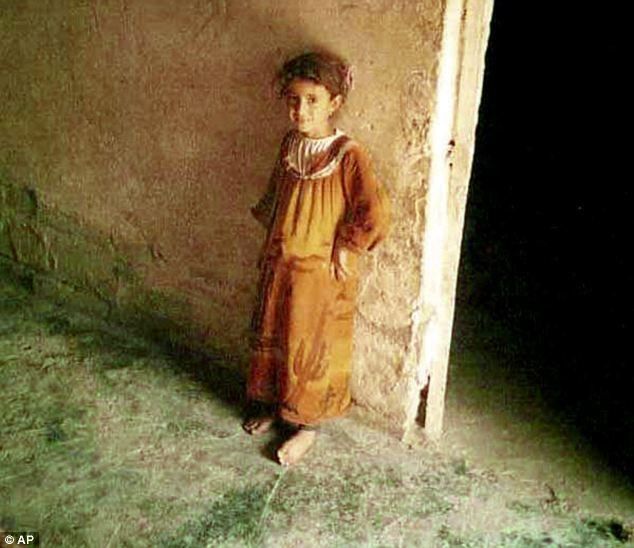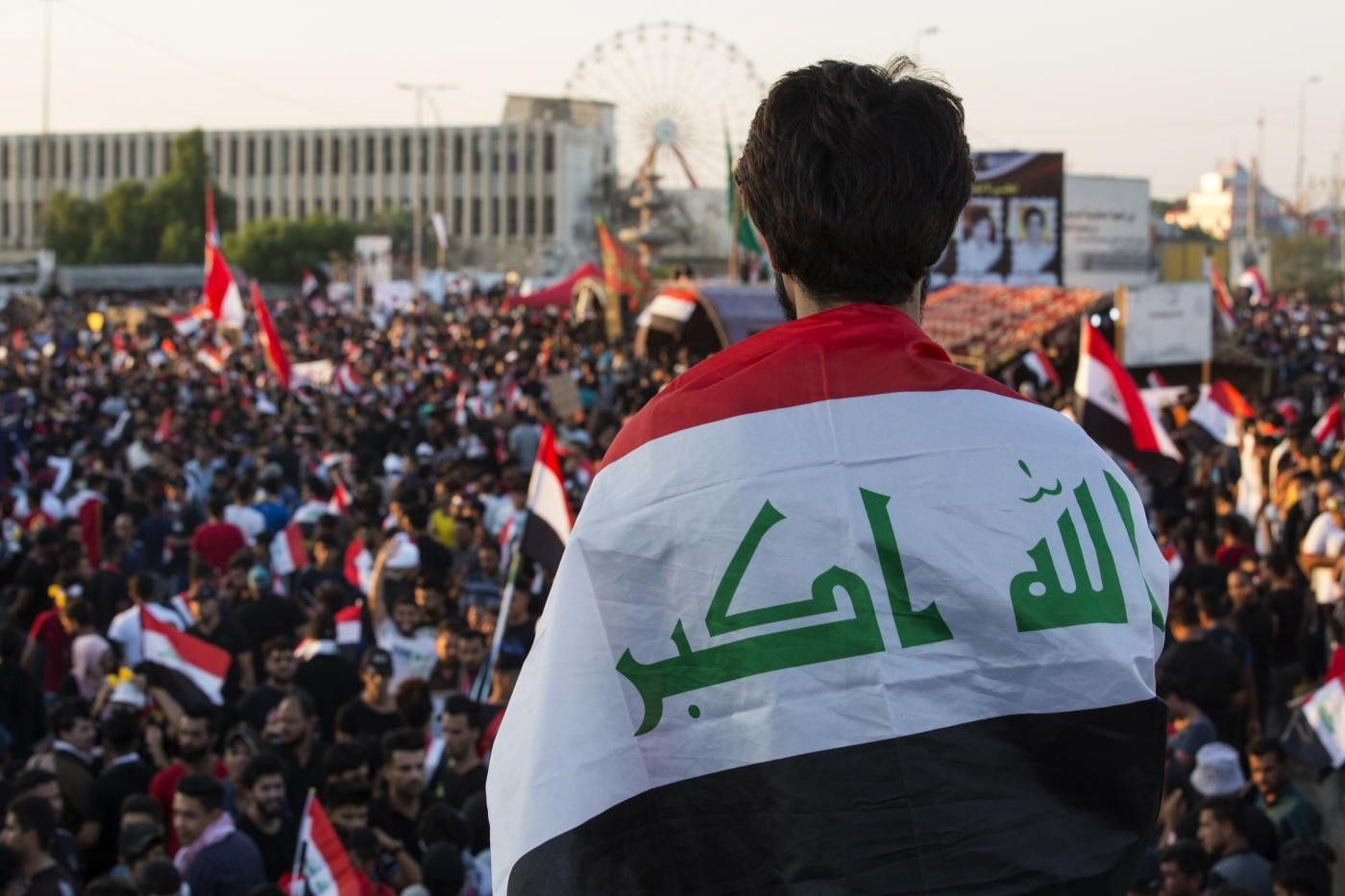Abeer and the Lost Iraqi Generation
Author: Anouschka Agob
On March 12th Abeer Qassim Hamza al-Janabi and her family experienced first-hand what Bush's vow to 'free the Iraqi people' really meant. Raped and murdered by soldiers of the US 101st Airborne Division of the Bravo Company, their blood was splashed all over the house, as a witness to the horrific and unspeakable crime committed by the very people that were supposed to 'free' them.

This incident later became known as the 'Mahmudiyah rape and killings', and received wide coverage by US and Iraqi media, but it was not the first nor the last incident in which US-soldiers were involved.
Rape as a warcrime
While rape of women during war and armed conflict is not a new phenomenon, it took the world centuries to recognize rape during armed conflicts as a ‘war crime.’1 Even for the UN, recognition of rape as a war crime, was no easy road. It wasn’t until 2008 that the necessary recognition came, but when the recognition finally came it came in no uncertain terms. The United Nations declared that "women and girls are particularly targeted by the use of sexual violence, including as a tactic of war to humiliate, dominate, and instil fear"2.
Journalist Benedict Helen, known for her books on the illegal 2003 invasion of Iraq, said that rape is frequently used 'as a means of psychological warfare in order to humiliate the enemy.'3 Thus, while rape and sexual violence have been used as a weapon of war for a long time, the crimes have been prosecuted only in recent years.
For Abeer and her family all of this came too late: while the five perpetrators involved received capital punishments, and some even received multiply lifelong sentences without the possibility of parole, their crimes were not designated as a ‘war crime’. In fact the ringleader of the gang of five soldiers involved, Steven Green, was tried at the U.S. District Civilian Court in Kentucky, since he was discharged from the US military before his heinous crime was found out.4
Abeer’s family was not satisfied with the punishment and Abeer’s uncle said that the punishment was ‘almost worse than the crime itself’.5 The Kentucky judge doubted whether executing Green was the right judgement to impose, since Green had been discharged for mental instability.
But while there was a sense of pity for Green – his lawyers and US media claimed that the violent impact of war had led Green to commit his horrific crimes- no word was wasted on the underlying causes of the loss of life and innocence of Abeer and her family. The media and US-authorities framed Green and his crimes in a way that portrayed him as the unfortunate victim of a malfunctioning US-military system that should have take better care of those sent on a mission in violent areas. Most coverage only stated the facts of the crime, and how the perpetrators suffered mentally while on mission in Iraq. Media used words like “Tearful soldier” or “a US-Soldier” to describe the perpetrators.6 Had Green been anything else than a Anglo-American citizen, the words ‘terrorist’, ‘war criminal’ and “barbarian’ would have been used, so as often happens by US-media and US- authorities to describe, for example, Iraqi’s, Russians, Iranians, Syrians etc.
Recognize Iraqi victims
Why the difference? And why the deafening silence on the victims? Why was the plight of Malala Yousufzai covered extensively and even received the Nobel Peace prize, while Abeer’s name was soon forgotten? In my opinion there can be only one reason for that: to talk about the Iraqi victims means to recognize them. And to recognize Iraqi’s, means to recognise their pain. To recognize the pain of Iraqi’s, means to humanize Iraqi’s. And the humanization of Iraqi’s is exactly what US-authorities and US-media have purposely been avoiding since the Gulf War first started. In fact, the language used by US-authorities and the US-media from the 1990’s can be best described as ‘dehumanization’ of Iraqi’s.7
And it would become worse, for soon even the ‘tolerant and progressive’ Hollywood picked up on the mood: from the Naked Gun, The Green Zone, to The American Sniper, Iraqi’s are portrayed as nothing more than “barbarians’’, who need to be subdued for the sake of saving the rest of humanity. This is the exact reason why Steven Green declared in court that ‘he didn’t think of Iraqi’s as human beings’.8
The dehumanization of Iraqi’s touches upon a even more urgent issue the US-authorities and media purposely ignore. It is an issue that goes to the very bottom of the current economic, social and demographic problems that plagues so many Iraqi’s. For the very result of years of war, sanctions, US-military invasion of 2003 into Iraq, its constant interference in the internal and external policies of Iraq, and the power struggle between Iran and the US and its Middle East allies, is the Lost Iraqi Generation.
The lost Iraqi generation
The Lost Iraqi Generation is perfectly represented by Abeer Qassim Hamza al-Janabi. Abeer is a symbol for the grave injustice that has been done to the Lost Iraqi Generation. A generation first haunted by the Iraq-Iran War or by the remnants of this war. Iraqi’s were not given any time to heal from the wounds of the Iran-Iraq War. Instead, they were immediately drawn into more geo-political games between the Saddam-administration and the US, which ensued from the deep economic malaise Iraq found itself in as a result of the Iran-Iraq War.

The illegal US-invasion of 2003 gave some Iraqi’s hope, but their hope was dashed soon. First, the US-occupiers were far more interested in establishing policies that were in their interest and not so much in the interest of Iraqi’s. As the executive director of the Institute for Policy Research & Development, dr. Nafeez Ahmed analysed, the real reasons for the invasion were not based on humanitarian grounds, pity for the Iraqi people, or even WMD’s:
“The most important strategic interest lay in expanding global energy supplies, through foreign investment, in some of the world's largest oil reserves – in particular Iraq. This meshed neatly with the secondary aim of securing contracts for their companies. “9
&
“Extensive plans for post-war reconstruction were pursued, but they did not consider humanitarian and societal issues of any significance, focusing instead on maintaining the authoritarian structures of Saddam’s Iraq, while upgrading Iraq's oil infrastructure to benefit foreign investors.”10
Second, incompetent and corrupt Iraqi politicians put the final needle in the coffin. Since the first election in 2004 they have not been able, or even unwilling, to create stable and democratic political, economic and social institutions and public services for Iraqi’s. Despite receiving billions of revenue from its oil-export,11 today 23% of Iraqi’s live in poverty while 11% is unemployed.12.
Thus, it is clear that Abeer never had any chance. Nor did anyone of the Lost Iraqi Generation. Used and abused, their life means nothing to greedy Zio-Americans or corrupt Iraqi political elite. And when they lose their life and their blood is splattered all over the streets of Iraq, the US and western authorities and media will make sure to either completely ignore their plight and suffering, or cover it in such a way that washes their hands of any guilt. An honest coverage of the injustice inflicted upon Iraqi’s, would mean to uncover the reasons behind this injustice. And that would be one step too far. For it would ultimately lead to the uncovering of an Inconvenient Truth: the fact that the US bears huge moral responsibility for the cause, plight and suffering of the Lost Iraqi Generation.
The views and opinions expressed in this article are those of the author and do not necessarily reflect those of IraqNow.
Footnotes:
Article cover: Painting by Max Becherer
1. Patricia H. Davis, The Politics of Prosecuting Rape as a War Crime, (The International Lawyer Vol. 34, No. 4, 2000, pp. 1223-1248)
2. OHCHR, Rape: Weapon of War, via https://www.ohchr.org/en/newsevents/pages/rapeweaponwar.aspx, retrieved 1st of December 2020.
3. Helen Benedict, Why Soldiers Rape – Culture of misogyny, illegal occupation, fuel sexual violence in military. (In These Times, 13 August, 2008). Via https://inthesetimes.com/article/why-soldiers-rape, retrieved 1st December 2020.
4. Steve Almasy, Former soldier at center of murder of Iraqi family dies after suicide attempt, (CNN, February 19, 2014), via https://edition.cnn.com/2014/02/18/us/soldier-steven-green-suicide/index.html, Retrieved 2nd December 2020.
5. Sami al-Jumaili & Habib al-Zubaidy, Iraqi relatives decry life for U.S. rape soldier. Reuters. May 22, 2009. Via https://www.reuters.com/article/us-iraq-usa-assault-reaction-idUSTRE54L2OW20090522, Retrieved 2nd December 2020.
6. See for example the following articles in US-media how Green was framed in a way that clearly portrayed Green as the unfortunate victim. https://www.nytimes.com/2009/05/22/us/22soldier.html& https://www.reuters.com/article/us-usa-iraq-murder-idUSN2037158220070221& https://www.nytimes.com/2006/07/14/us/14private.html
7. Daoud Kuttab, The media and Iraq: a blood bath for andgross dehumanization of Iraqis, (The International Review for the Red Cross, Volume 89 Number 868 December 2007). Via https://www.corteidh.or.cr/tablas/a21893.pdf, retrieved on 2nd December 2020. &
-Ali Lorraine, The dehumanizing of Iraqis is the main ‘American Sniper’ issue, (LA Times, JAN. 29, 2015). Via https://www.latimes.com/entertainment/movies/la-et-mn-ca-american-sniper-essay-20150201-story.html, retrieved 2nd December 2020.
8. Mail Foreign Service, I didn't think of Iraqis as humans,' says U.S. soldier who raped 14-year-old girl before killing her and her family, (The Daily Mail, 21 December 2010). Via
https://www.dailymail.co.uk/news/article-1340207/I-didnt-think-Iraqis-humans-says-U-S-soldier-raped-14-year-old-girl-killing-her-family.htmlRetrieved 2nd December 2020
9. Dr Nafeez Ahmed, Iraq invasion was about oil- Maximising Persian Gulf oil flows to avert a potential global energy crisis motivated Iraq War planners - not WMD or democracy, (The Guardian, 20th March 2014). Via https://www.theguardian.com/environment/earth-insight/2014/mar/20/iraq-war-oil-resources-energy-peak-scarcity-economy. Retrieved on 2nd December 2020.
10. Ibid.
11. EITI REPORT, Iraq receives almost USD 100 billion in sales of oil in 2012, (EITI, Jan 15, 2015)
Via https://eiti.org/news/iraq-receives-almost-usd-100-billion-in-sales-of-oil-in-2012, Retrieved 3rd December 2020.
12. UN IRAQ, Country Profile. Via http://www.uniraq.com/index.php?option=com_k2&view=item&id=941:country-profile&lang=en#:~:text=7%20million%20Iraqis%20(23%25%20of,and%2013%25%20of%20females)
Retrieved 3rd December 2020.
